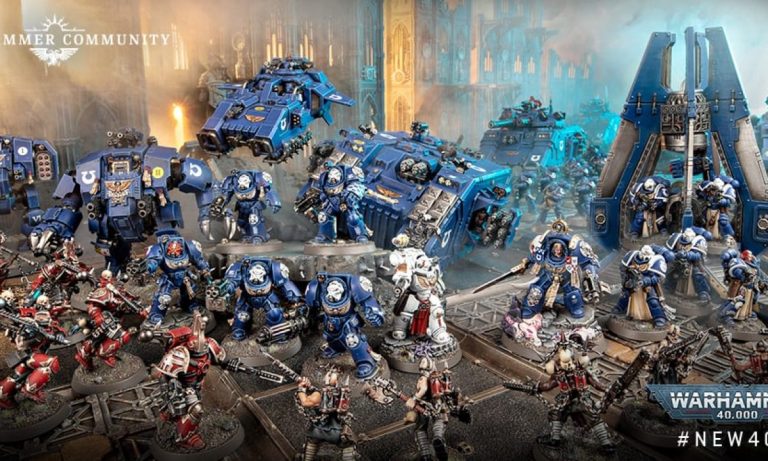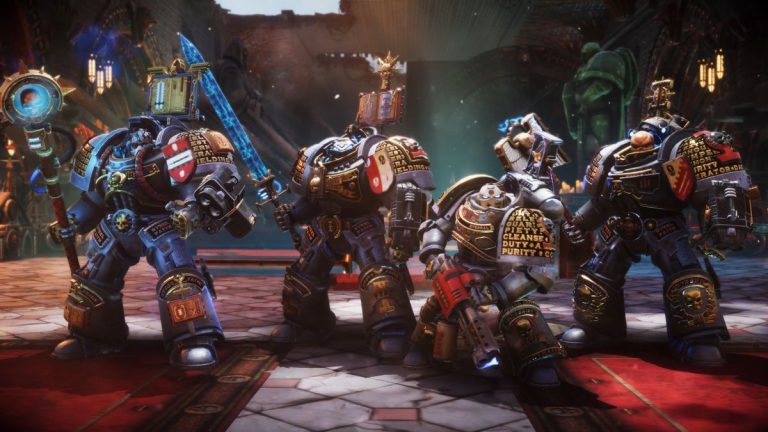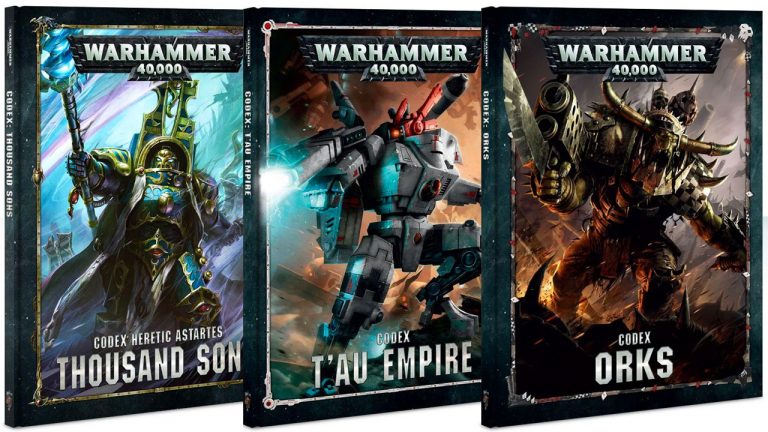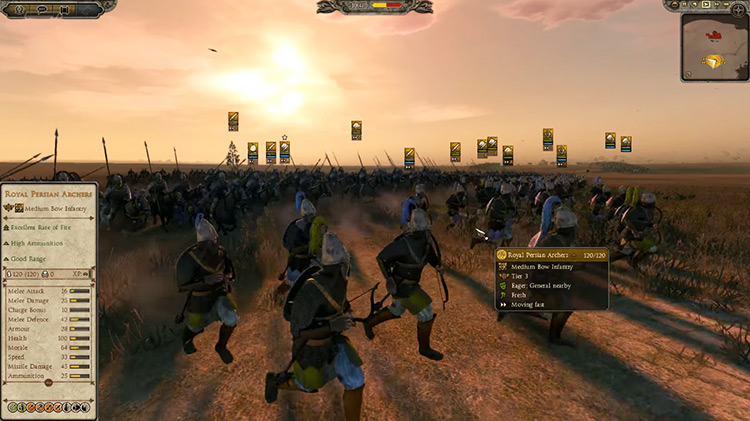Can I Form Alliances With Other Players’ Factions In Warhammer 40K?
Are you a Warhammer 40K enthusiast looking to take your gameplay to the next level? Well, you’re in luck because today we’re going to delve into a fascinating aspect of the game: forming alliances with other players’ factions. Yes, you heard it right! In the vast and chaotic universe of Warhammer 40K, it’s not just about pitting your own faction against others; you have the opportunity to join forces with fellow players and create powerful alliances that can change the course of battles. So, can you form alliances with other players’ factions in Warhammer 40K? Let’s find out!
Warhammer 40K is renowned for its intricate and immersive gameplay, and the ability to form alliances adds a whole new layer of depth to the experience. Imagine strategizing and coordinating with other players, pooling your resources and strengths, and unleashing devastation upon your foes together. It’s a thrilling prospect that can lead to epic battles and memorable moments on the tabletop. Whether you’re a fan of the noble Space Marines, the cunning Eldar, or the hulking Orks, forming alliances allows you to explore new tactics, leverage unique abilities, and forge bonds with fellow players who share your passion for the game. So, get ready to join forces and conquer the battlefield in Warhammer 40K!
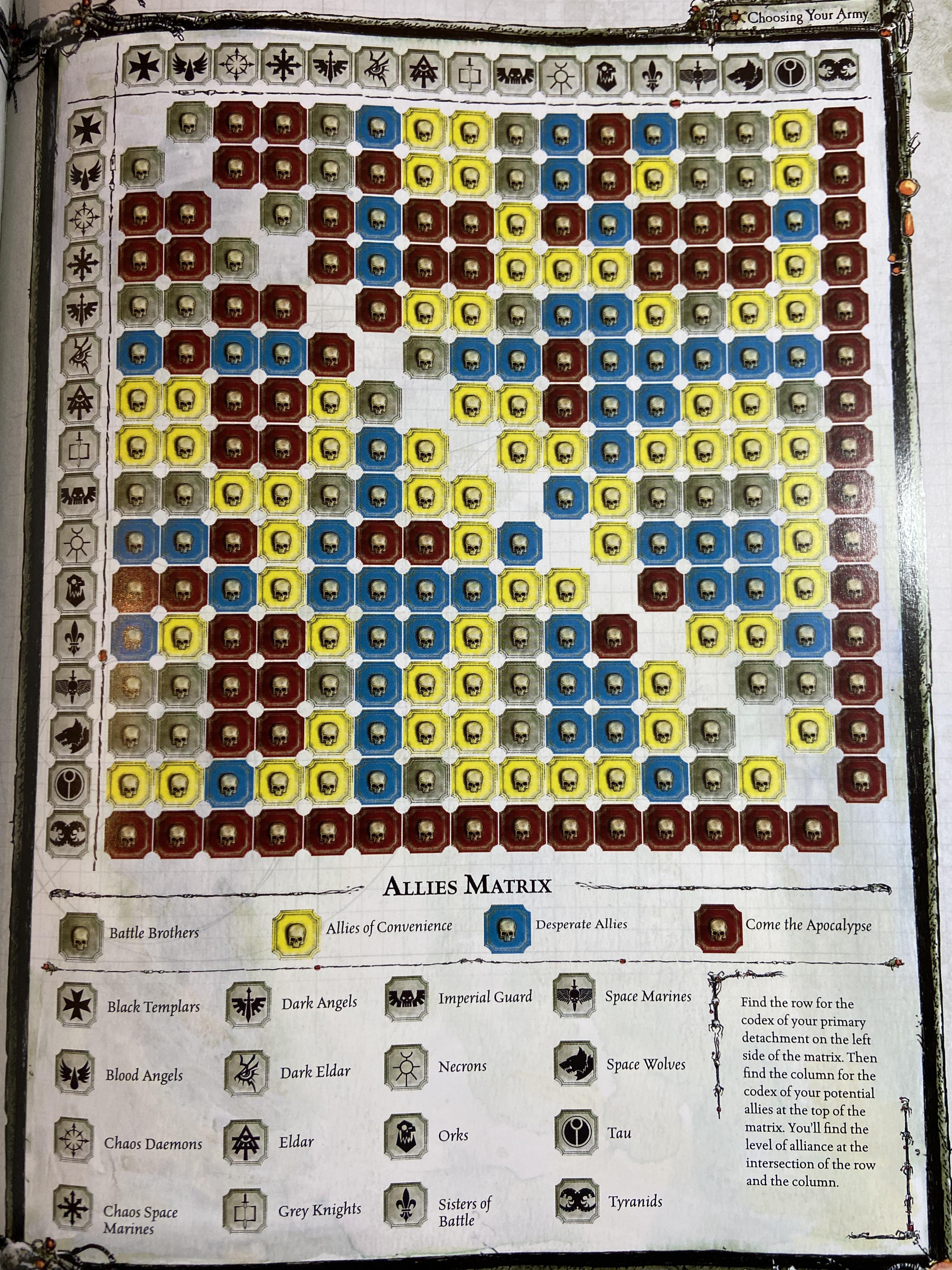
Can I Form Alliances with Other Players’ Factions in Warhammer 40K?
In the world of Warhammer 40K, the concept of alliances between different factions is a topic of great interest for many players. While the game is primarily focused on intense battles and strategic warfare, the idea of forming alliances with other players’ factions can add a whole new layer of gameplay and excitement. In this article, we will dive deep into the question of whether it is possible to form alliances in Warhammer 40K and explore the various aspects and implications of such alliances.
The Possibility of Alliances
Warhammer 40K is a game known for its rich lore and immersive universe, where various factions clash in epic battles. However, the game rules do not explicitly allow for formal alliances between factions. Each faction is designed to be independent and self-sufficient, with its own unique strengths and weaknesses. This is in line with the grim and gritty nature of the Warhammer 40K universe, where trust is rare and alliances are often short-lived or born out of necessity rather than camaraderie.
That being said, the open-ended nature of the game leaves room for players to create their own narrative and forge alliances within the boundaries of the rules. This can be done through informal agreements and alliances that are not officially recognized by the game mechanics. It requires mutual consent and agreement between players, as well as careful negotiation and strategizing to ensure a mutually beneficial alliance.
Benefits and Challenges of Alliances
Forming alliances with other players’ factions can offer several advantages in the game. Firstly, it can provide a tactical advantage by allowing players to combine their forces and resources to overcome stronger opponents. By pooling their armies and coordinating their strategies, allied factions can create a formidable force that is more than the sum of its parts.
Additionally, alliances can foster a sense of camaraderie and cooperation among players, creating a more social and interactive gaming experience. It can lead to shared victories, joint campaigns, and memorable moments that enhance the overall enjoyment of the game. Furthermore, alliances can also serve as a platform for players to exchange knowledge, tactics, and tips, helping each other to improve their gameplay and expand their understanding of the game.
However, forming and maintaining alliances in Warhammer 40K also comes with its fair share of challenges. Trust is a crucial factor, as players must rely on each other to honor their agreements and not betray their allies. Moreover, the dynamic nature of the game and the ever-changing alliances between factions can make it difficult to sustain long-term alliances. Players must be prepared for the possibility of shifting alliances and changing loyalties, as the game’s narrative and strategic landscape evolve.
Strategies for Forming Alliances
While alliances may not be explicitly supported by the game rules, there are several strategies that players can employ to create informal alliances and foster cooperation with other players’ factions. Here are a few tips:
- Establish open lines of communication: Reach out to other players and express your interest in forming alliances. Building strong lines of communication can lay the foundation for future collaborations.
- Identify common goals and interests: Find players whose goals and play styles align with yours. Look for synergies and shared objectives that can form the basis of a mutually beneficial alliance.
- Offer incentives: Provide incentives or benefits to potential allies to entice them into forming an alliance. This can be in the form of shared resources, strategic advantages, or assistance in achieving specific objectives.
- Negotiate and compromise: Alliances require compromise and negotiation. Be open to finding common ground and be willing to make concessions to ensure a successful alliance.
- Communicate and coordinate: Regularly communicate and coordinate with your allies to ensure that everyone is on the same page. Effective communication and coordination are key to maintaining a strong and successful alliance.
Conclusion
While the game rules of Warhammer 40K do not explicitly support formal alliances between factions, the possibility of forming alliances exists within the realm of player-driven narratives and interactions. Informal alliances can provide tactical advantages, enhance the social aspect of the game, and create memorable experiences. However, they also present challenges such as trust issues and the dynamic nature of the game. Ultimately, the decision to form alliances rests on the players and their willingness to navigate the complexities of forging alliances in the grim darkness of the Warhammer 40K universe.
Key Takeaways: Can I form alliances with other players’ factions in Warhammer 40K?
- Yes, you can form alliances with other players’ factions in Warhammer 40K.
- Alliances are formed through the use of specific rules and mechanics.
- Players can negotiate and agree upon alliances before the game starts.
- Alliances can provide strategic advantages and allow players to combine forces.
- However, it’s important to remember that alliances can also be temporary and may change throughout the game.
Frequently Asked Questions
In Warhammer 40K, forming alliances with other players’ factions can add an exciting dynamic to the game. While alliances are not a built-in feature of the game, there are certain ways in which players can work together and collaborate. Here are some commonly asked questions regarding forming alliances in Warhammer 40K.
1. Can I ally with another player’s faction in Warhammer 40K?
Officially, there are no rules for forming alliances with other players’ factions in the Warhammer 40K rulebook. Each faction is designed to be played as an independent force, with their own unique abilities and strategies. However, some players may agree to informal alliances or cooperative gameplay, where they work together to achieve common objectives.
It’s important to note that any alliances formed must be agreed upon by all players involved, and the specific terms of the alliance should be discussed and decided before the game begins. This can add an extra layer of strategy and teamwork to your games, but it is not an official part of the game’s rules.
2. Are there any restrictions on forming alliances in Warhammer 40K?
Since alliances are not a part of the official rules, there are no specific restrictions on forming alliances in Warhammer 40K. However, it’s important to keep the game balanced and fair for all players involved. It’s recommended to discuss and agree upon the terms of the alliance beforehand, ensuring that no player gains an unfair advantage.
Additionally, it’s essential to respect the lore and narrative of the game. Aligning factions that are traditionally enemies in the Warhammer 40K universe may not make sense from a storytelling perspective. It’s always a good idea to consider the lore and background of the factions involved when forming alliances.
3. How can I collaborate with other players without forming official alliances?
While official alliances may not be part of the rules, there are still ways to collaborate and work together with other players in Warhammer 40K. One common practice is to engage in narrative campaigns or multiplayer scenarios where players can team up temporarily to face greater challenges or achieve specific objectives.
Another way to collaborate is to coordinate your strategies and tactics with other players during the game. By discussing and planning your moves together, you can create a more coordinated approach that can give you an advantage on the battlefield.
4. Can I use units from another player’s faction in my army?
Generally, each player is expected to use units from their own faction when building their army in Warhammer 40K. However, there are some instances where players may agree to allow the use of certain units from another player’s faction. This can add variety and customization to the game, but it should be agreed upon by all players involved and follow the guidelines set by the game’s rules and balance considerations.
It’s important to note that using units from another player’s faction should not give you an unfair advantage or disrupt the balance of the game. It’s best to discuss and agree upon the use of such units before the game begins, ensuring that all players are comfortable with the arrangement.
5. Are there any official rules for alliances in Warhammer 40K?
No, there are no official rules for alliances in Warhammer 40K. The game is primarily designed for players to control their own factions and engage in strategic battles against one another. However, the flexibility and creativity of the game allow players to explore cooperative gameplay and alliances on an informal basis, as long as all players involved agree and the balance of the game is maintained.
Ultimately, forming alliances is a matter of player agreement and house rules. It’s always best to discuss and establish the terms of any alliances before starting a game, ensuring that all players are on the same page and can enjoy a fair and balanced gameplay experience.
How Does Each Race Engage in Diplomacy with the Others? | Warhammer 40k Lore
Conclusion:
So, can you form alliances with other players’ factions in Warhammer 40K? The answer is both yes and no. While the game rules do not explicitly allow for formal alliances, there is plenty of room for negotiation and cooperation with other players. You can forge temporary alliances, make agreements, and strategize together to take down a common enemy. These informal alliances can add an exciting layer of depth and intrigue to your Warhammer 40K experience.
However, it’s important to remember that the primary focus of the game is the conflict between different factions. Each faction has its own unique goals and motivations, and the game is designed to simulate intense battles and rivalries. So, while alliances can be formed, they should be approached with caution and a keen understanding of the dynamics between factions.
In the world of Warhammer 40K, it’s all about adapting, strategizing, and making the most of the resources and opportunities available to you. Whether you choose to forge alliances or go it alone, the key is to always stay true to your faction’s objectives and play the game in a way that brings you the most enjoyment. So grab your army, gather your allies, and dive into the rich and immersive universe of Warhammer 40K. The battlefield awaits!


